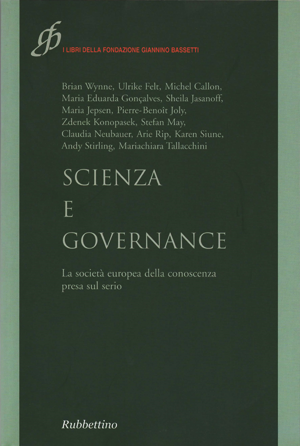The relationships between science and society are at the centre of a European project aimed at building a “knowledge based society” but they also represent an extremely problematic element. The controversies mainly involve the theme of scientific-technological innovation and in particular responsibility taking for innovative choices and their consequences. This debate often runs the risk of finishing in a sterile ideological deadlock between those for or against science. But the contemporary governance of science requires a more complex approach, in which different social voices and different forms of knowledge can give life into new and articulate democratic processes.
Therefore with the intention of promoting a reflection upon the politics and rights of science in Italy, the Bassetti foundation has published an Italian translation of the European report “Taking European Knowledge Society Seriously” through the publishing house Rubbettino Editrice
The report was produced by an expert working group, that with an EU mandate has studied three particular aspects of European science and its governance: 1) how to respond to the widespread problem of the lack of trust of science on the part of European society; 2) how to implement democracy and the involvement of civil society; 3) identify some urgent policy challenges regarding climate change and sustainable development.
The publication of the volume gave the foundation the opportunity to organize a series of events and meetings, introduced and followed up by articles on this site.
Scienza e Governance. La società europea della conoscenza presa sul serio.
By Brian Wynne, Ulrike Felt, Michel Callon, Maria Eduarda Gonçalves, Sheila Jasanoff, Maria Jepsen, Pierre-Benoît Joly, Zdenek Konopasek, Stefan May, Claudia Neubauer, Arie Rip, Karen Siune, Andy Stirling, Mariachiara Tallacchini
With preface by Piero Bassetti and Mariachiara Tallacchini
Rubbettino Editore, 2008

















